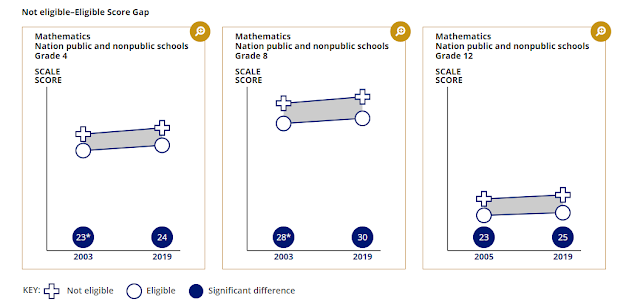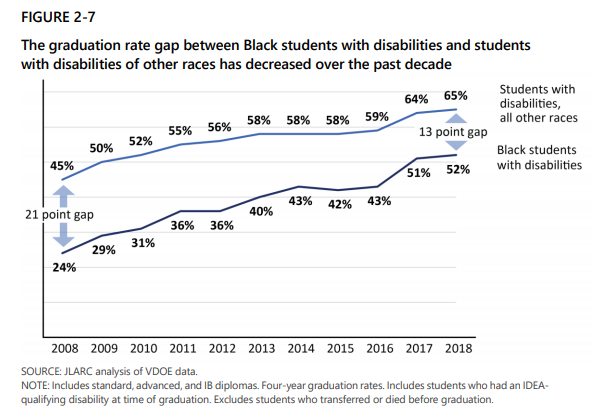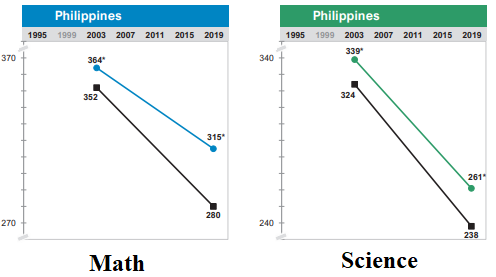A Lost Year or a Lost Decade in Basic Education

Now that we are at the end of year 2020, it is time to reflect on what we are leaving behind. Yes, 2020 may well be the worse year we have seen in this century. And we are all hoping that 2021 will be better. Since this blog focuses on basic education in the United States and in the Philippines, it is sobering to point out that this year only highlights our failures in basic education in both countries not just this year but during the past decade. In the United States, equity in education is still not within reach. Academic achievement gaps between the "haves" and "have nots" remain in schools in the US. And in the Philippines, a decade is lost by foolishly embarking on a new curriculum that does not address the real problems its schools are facing. The achievement gap as seen vividly in the Nation's Report Card in the United States has lingered almost in the past two decades. Students who are eligible for free lunch based on family income are still scoring low...





